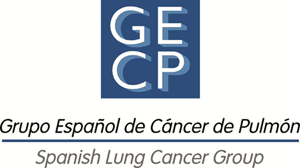 From November 1, 2013, Translational Lung Cancer Research (TLCR) is officially endorsed by the Spanish Lung Cancer Group (figure 1). This is a meaningful milestone for TLCR as an acknowledgment of its expansion and dedication to lung cancer research and will tremendously advance its continued exploration in the field.
From November 1, 2013, Translational Lung Cancer Research (TLCR) is officially endorsed by the Spanish Lung Cancer Group (figure 1). This is a meaningful milestone for TLCR as an acknowledgment of its expansion and dedication to lung cancer research and will tremendously advance its continued exploration in the field.
Since it was launched in Mar 2012, TLCR has been dedicated to providing cutting-edge findings in the rapidly changing field of lung cancer, while providing practical up-to-date information on diagnosis, prevention, and treatment. The goal of the journal is to provide readers with new, well-constructed, informative, and educational information.
Early in April and June 2013, TLCR launched a special issue series (two chapters) on targeted therapy for lung cancer, guest-edited by Dr Rosell Rafael and Dr Niki Karachaliou. These special issue series are now recommended by the Spanish Lung Cancer Group, French Lung Cancer Group and Clinical and Translational Oncology Group as a valuable volume of literature for worldwide physicians. This special issue series is also highlighted in the European Thoracic Oncology Platform (ETOP): https://www.etop-eu.org/index.php?option=com_content&view=article&id=89454&Itemid=326.
The first chapter provides a state-of-art review of systematic genomic testing of lung cancer, with a focus on genetic etiology, diagnostic tools and management of these clinically relevant molecular subsets of lung cancer according to a classification schema based on specific driver mutations. By providing the key discoveries relating to the molecular biology of many cancers and the development of effective and specific targeted treatments, we hope the ability to personalize cancer therapy based on individual patient genotypes will become a reality in clinical practice.
The second chapter illustrates further research efforts in dealing specific issues such as resistance to targeted treatment, management of lung cancer in elderly patients, tumor heterogeneity and other treatments for lung cancer like genomic sequencing, chemotherapy and radiotherapy. Both chapters are also available in Chinese. We hope you readers will enjoy these chapters and we will be delighted to receive their comments.
The successful launch of these two important special issues lays a foundation for further collaboration between TLCR and the Spanish Lung Cancer Group.
The Spanish Lung Cancer Group (SLCG) is an independent non-profit cooperative group created in 1991. Its aim is to promote investigation in lung cancer. The SLCG is comprised of specialists in medical oncology, thoracic surgery, radiotherapy oncology and basic investigators. It includes more than 145 centres, public and private, across Spain. The SLCG has developed its activity in clinical investigation of the different types of lung cancer and different clinical situations, from initial to advanced stages. In the different protocols and clinical tests that have been carried out (> 60) they have treated more than 14000 patients.
The SLCG participates, develops and coordinates international projects with other reference cooperative groups in clinical research of lung cancer. Since its beginnings, the SLCG has been noted for its close collaboration, in all projects, with genetic and molecular basic investigation techniques.
The 10th Congress on Lung Cancer in Barcelona (the SLCG bi-annual meeting) was held in November 2013. With an aim to further extend the impact of the Congress and to provide a overview of the updated knowledge presented during the same, TLCR is now working with Dr Rosell on a special issue dedicated to the SLCG 10th Congress on Lung Cancer in Barcelona.
We believe this collaboration with SLCG is going to be win-win for both parties. On the road to better service for physicians and patients, we expect to collaborate ever more closely with the international authorities in the field, such as the SLCG, to provide the most up-to-date knowledge and advances to our readers.
